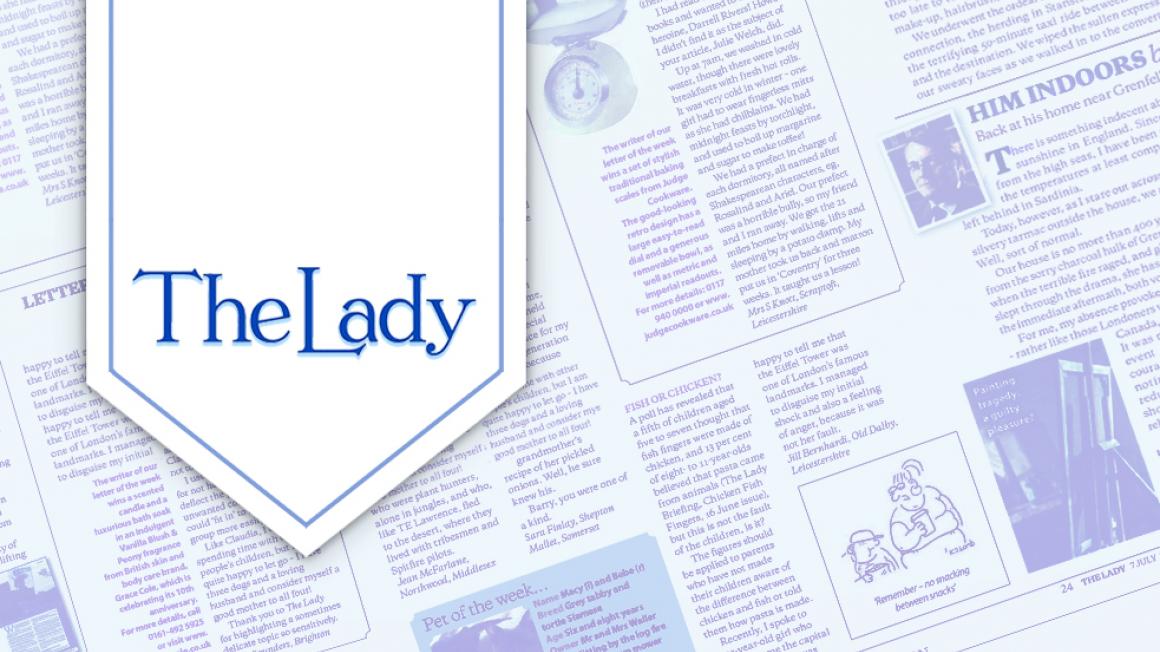The Lady Guide to Modern Manners: 21 September
The other week you looked at the fraught issue of whether a man should give up his seat to a lady. Could you move on to the broader aspects of how men ought to behave towards women sooner rather than later? You did promise. I'm a 40-something divorcee and I have just started dating a man who works at the office. Quite honestly, from the etiquette point of view, I don't know whether I'm coming or going. Neither does he, I shouldn't wonder.
Beverley Cargill, Chesterfield
Dear Beverley,
What a frenzy! I do hope you're having fun, all the same. Your situation is intriguing and instructive because in the workplace, men are expected to treat women in one way, but on a date it's all quite different – or is it? This is why men are unhinged.
American writer Norah Vincent disguised herself as a man and went out dating. Perhaps we should all try this, bearing in mind our starter gender, of course. What she claimed to discover was that women expect men to take the initiative, pay for everything, hold the door open. 'Women don't want soft, vulnerable men,' she says.
On the other hand, a young man of 30-odd wailed to me about the dating game: 'One minute you have to be strong and protective, the next she wants you to be modern and show your feelings.' The only solution, he said, was to get married.
Well, it's just too bad. Why shouldn't women be contrary? How else are men to be kept dangling? You just can't go Dutch on a date. It's too dreary. When the bill comes, the lady dips her head ambiguously and looks away. She only pays half, or all, the account if she wants to dismiss the man because he didn't forge first into the restaurant, didn't help her with her coat, didn't have the knack of attracting the waiter and turned out to be frightened of wasps.
The New Man, worthily spooning oatmeal from a healthfood shop and painstakingly dividing up the household chores, never got off the ground. Just not sexy. Men and women may be equal but they're not the same. A dash of gallantry shows this. That's why women like it.
But in the workplace it's all quite different. No chivalry, please. Or sexist carry-on. Do you remember David Cameron, our PM, getting into eau chaud for telling Angela Eagle, shadow chief secretary to the Treasury, to 'calm down, dear'? The House of Commons is a workplace. But Jack Straw, when Foreign Sec, did the right thing in accepting Condoleezza Rice's offer of the only bed on Air Force One while she took the floor. There was no other way of treating her as an equal. This does not mean to say that men at work should never fetch a woman colleague a biscuit or help her to move a grand piano, should there be one.
Please send your questions to Thomas.blaikie@lady.co.uk or write to him at The Lady, 39-40 Bedford Street, London WC2E 9ER.
WHAT TO DO... If your pronunciation is corrected
A lot of people correct without thinking, inserting at once the supposed true version, undermining confi dence quite thoroughly. My grandmother (born 1895) knew two sisters, earnest self-improvers, who always said, 'me-derv-eal' instead of the more easily recognised 'medi-eval'. Granny always said it was wrong to pronounce words differently from the person you were talking to, let alone correct them (she also said you should never switch on or off other people's lights). So in the presence of these sisters, everyone had to be sure to say 'me-derv-eal'.
Very charming, but quite elaborate and of course they never learnt. These days, more and more quite common words are pronounced in differing ways. It's the 'I'll do it my way' mentality that shapes our world and has many benefi ts.
It's rather nice, if you think someone has mispronounced, to avoid the word altogether. So those sisters could have been surrounded by people relentlessly saying 'Middle Ages'. Or, try, 'I always say such-and-such, but it's most likely wrong.' Whereupon the other person will probably say, 'I don't know either.' To correct directly is a bit of a stab.



